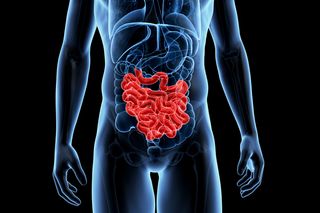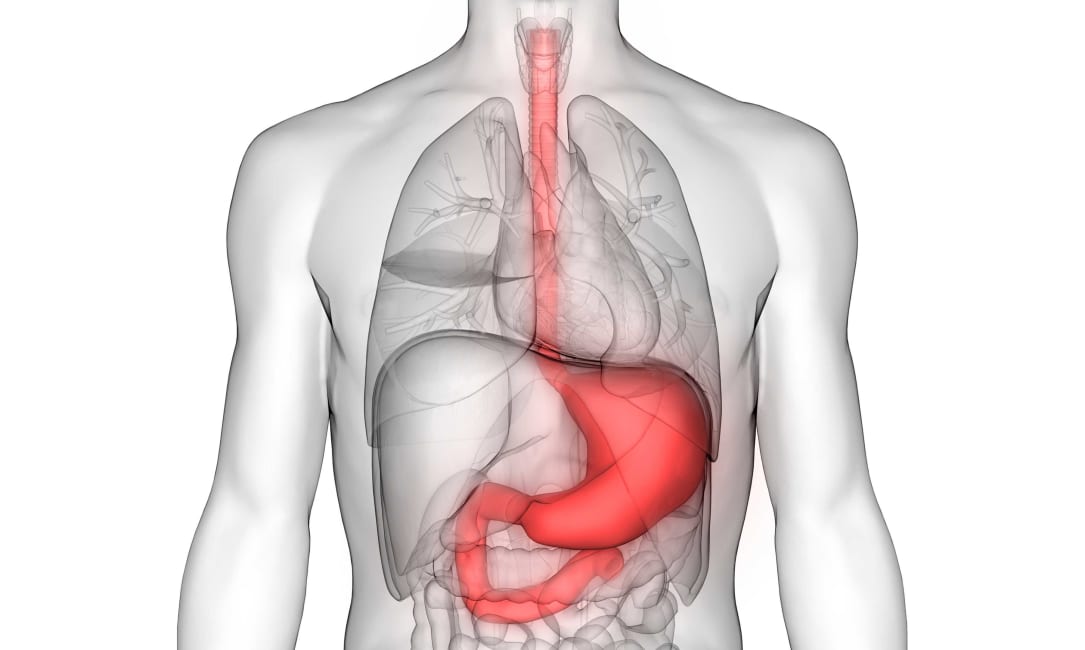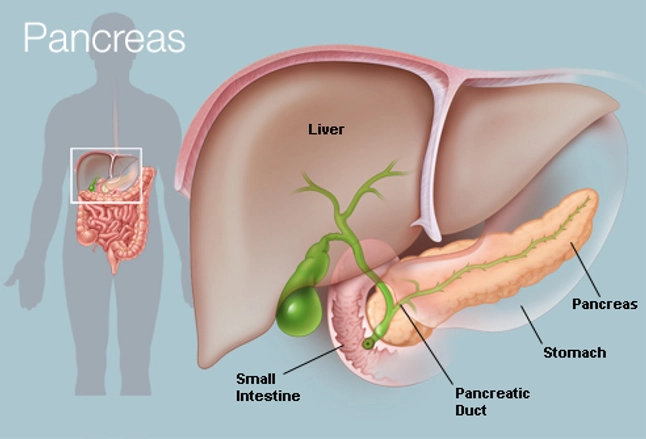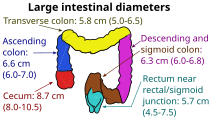This is the largest part of the digestive system. Therefore the average length of the human intestine is equal to the length of the small intestine added to the length of the large intestine. Its mucosal area in an adult human is about 30 m 2. The small intestine small bowel is about 20 feet long and about an inch in diameter. The small intestine begins at the duodenum and is a tubular structure usually between 6 and 7 m long. Anne marie thomasino 2001.
The only way the small intestine can fit into our bodies is by curling and looping to fit in a small space. The small intestine is a long narrow tube that is all coiled up in the lower part of our abdomen the part of our body we usually call our stomach. As a result the average length of the human intestine can be anywhere from 6 to 85 meters in length depending on size and age of the person it occupies. The large intestine forms an upside down u over the coiled small intestine. The large intestine is about 5 6 feet long. The intestines include the small intestine large intestine and rectum.
The large intestine is about 5 feet 15 meters long. The cecum the colon and the rectum. Its job is to absorb most of the. It has three parts. It is over 20 feet 6 meters long. If you stretched out your large intestine it would be about as long as the width of a queen size bed.
The colon is the longest portion of. It begins at the lower right hand side of the body and ends on the lower left hand side. There are three major divisions. Its main function is to absorb the products of digestion including carbohydrates proteins lipids and vitamins into the bloodstream.
















.ashx)